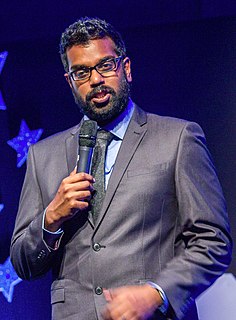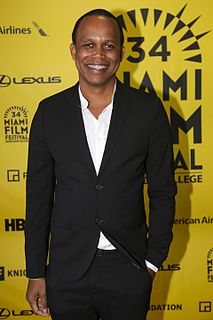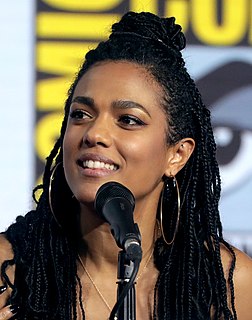A Quote by Doris Lessing
It is very enjoyable, writing a story. You get this idea. It takes hold of you. And then you spend day and night thinking about how to do it. And then you do it. And much later, you think, 'Oh, yes. That's an interesting question.'
Related Quotes
Write all the time. I believe in writing every day, at least a thousand words a day. We have a strange idea about writing: that it can be done, and done well, without a great deal of effort. Dancers practice every day, musicians practice every day, even when they are at the peak of their careers – especially then. Somehow, we don’t take writing as seriously. But writing – writing wonderfully – takes just as much dedication.
Writing is so... I don't know, it's such a practice, and I feel very unpracticed in it, because I'm not doing it every day. And I really need to do it every day. In other words, you spend all this time writing a movie, and then you stop, and then you're shooting the movie, and then you're cutting, and a year and a half goes by, because in the editing room, you're not writing.
Perhaps if there is anything remotely interesting about my writing style, it is this: more often than not I have no idea what the story is going to be about. Sometimes I have a fuzzy vision, or a glimpse of one scene, or a character. But mostly all I have is a random first sentence, and I follow it to see where it might go. For me, writing is the process of discovery, of gradually figuring out what happens in the story and how it ends, that makes writing an interesting process for me.
For people who are coming out of an oral tradition, it is very exciting to get into reading and writing and it is quite interesting how frequently people want to write their own story. Sometimes it is straight history - this is how we came about, how our town was created, a lot of that kind of effort, as soon as literacy came. The first thing you wanted to do was to put something down about who you are or how you are related to you neighbors. Then the next stage would be the stories, the cultural part of the story: this is the kind of world our ancestors made or aspired to.
With a novel, you have to have a story. It's much more important to have it matter to the reader what happens to people, and it has to make sense and end in a way that is satisfying. So I spend a lot more time thinking about that. Then the writing itself usually is easier for me, because I know where it's going.
If you start with the idea that you are going to be writing about a night in a graveyard, and that there are only a few living people in that frame, all sorts of interesting and difficult technical problems arise. And then form - new form, or experimental form - might be understood as just trying to tell that story most movingly and efficiently.
It's funny - for a long time, I didn't know I was writing a book. I was writing stories. For me, each story took so long and took so much out of me, that when I finished it, I was like, Oh my gosh, I feel like I've poured everything from myself into this, and then I'd get depressed for a week. And then once I was ready to write a new story, I would want to write about something that was completely different, so I would search for a totally different character with a different set of circumstances.







































